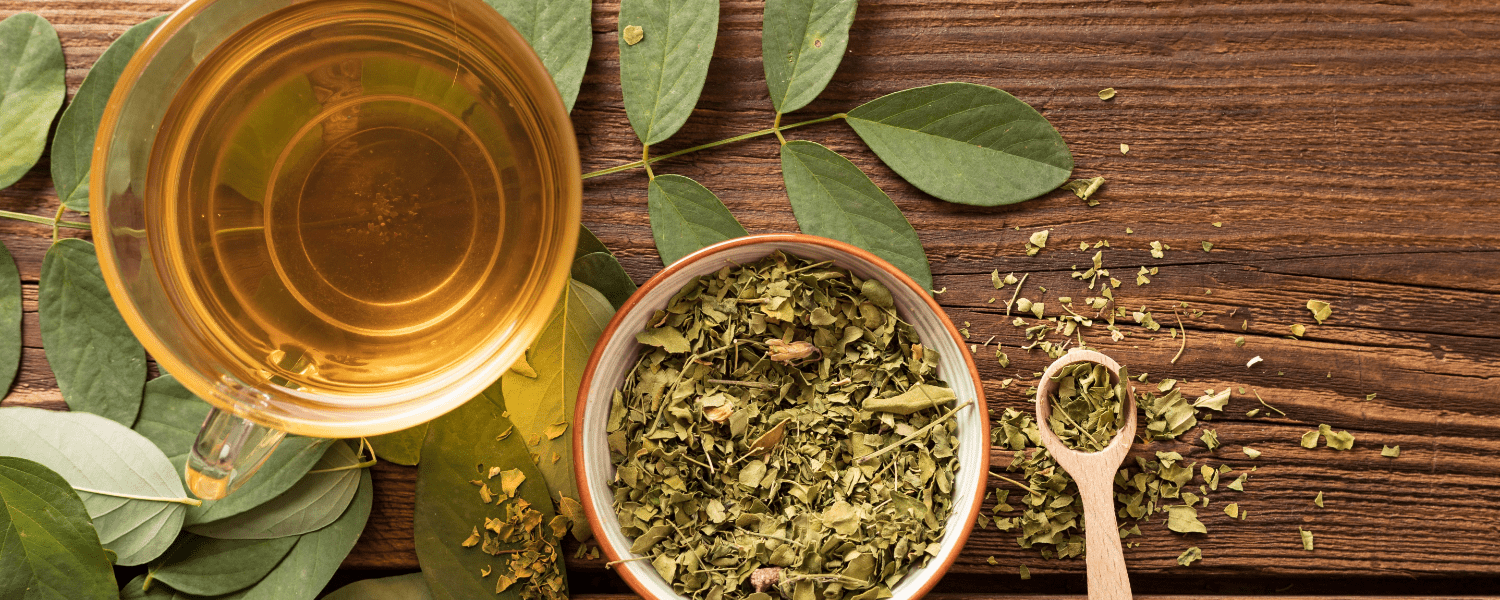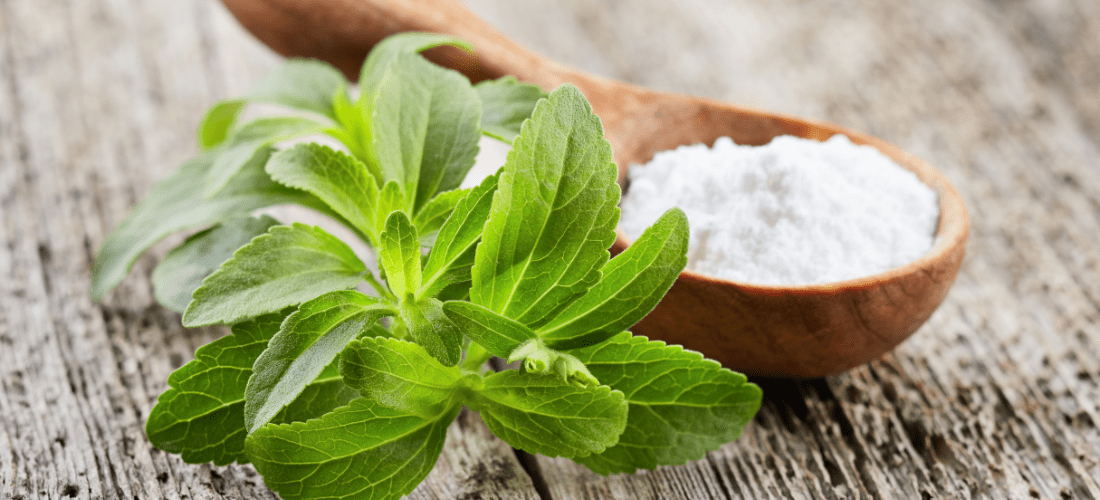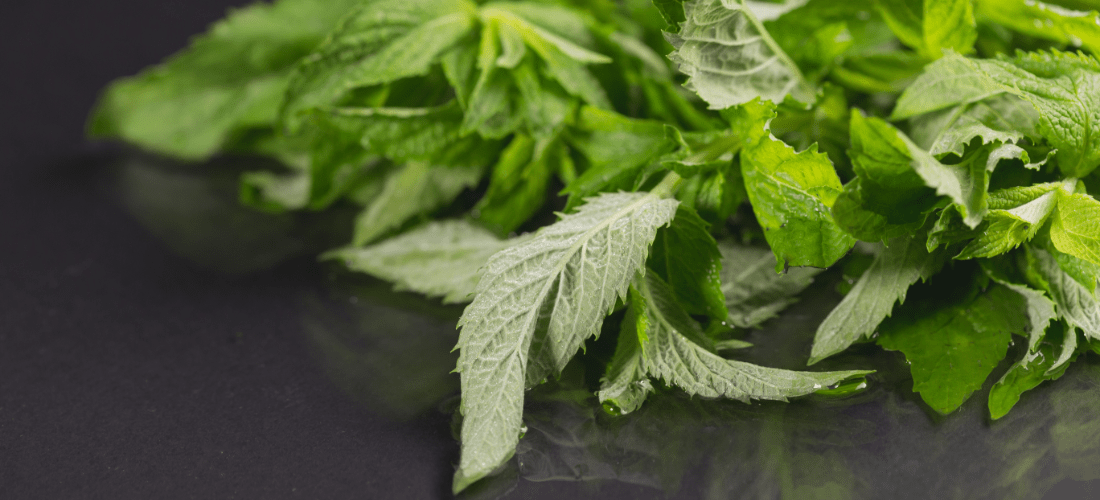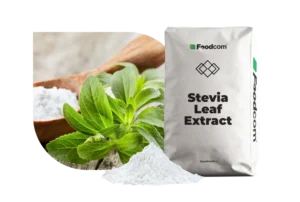Stevia, or Stevia rebaudiana, is a plant whose leaves have been used as a natural sweetener for hundreds of years. In recent years, it has gained immense popularity around the world as an alternative to sugar and synthetic sweeteners. Thanks to its unique properties and wide range of applications, it has become an important ingredient in the food and pharmaceutical industries. Where does stevia come from, how is it harvested, and what are its properties?
Where does stevia come from, and how is the extract from its leaves produced?
Stevia comes from South America – mainly from Paraguay and Brazil, where it has been used for centuries by indigenous peoples to sweeten drinks and prepare traditional herbal concoctions. In the language of the Guarani Indians, it was called ka’a he’ê, which literally means “sweet herb.”
Currently, stevia is also grown in Asia, mainly in China and India, where the climatic conditions are ideal for its development. It is cultivated in a sustainable manner, and the mature leaves are harvested when the content of natural steviol glycosides is at its highest.
Stevia leaf extract – how is it made?
Stevia belongs to a group known as natural sweeteners. The process of obtaining extract from stevia leaves involves several stages:
- Harvesting – the leaves are cut when fully ripe.
- Drying – the raw material is dried at a controlled temperature to preserve all the sweetening compounds.
- Extraction – the leaves are treated with water or natural solvents to extract the steviol glycosides, which are responsible for the sweet taste.
- Filtration and purification – in this process, bitter substances and impurities are removed to obtain a pure extract.
- Final drying – the extract is then dried and processed into a powder or granules.
The result is a pure product with a very high sweetener content. The extract prepared in this way is ready for use in various industries.
Properties of stevia
Extraordinary sweetness without calories
Steviol glycosides, such as stevioside and rebaudioside A, are up to 200-300 times sweeter than sugar. Importantly, they provide virtually no calories, making them popular with people who are watching their weight or avoiding sugar. Even a small amount of extract is enough to achieve the desired level of sweetness.
Stevia retains its properties at high temperatures and in acidic environments, so it can be used in beverages, desserts, and even baked goods.
Safe for diabetics
The human body does not digest steviol glycosides in the same way as sugar. They do not cause a rapid increase in blood glucose levels, which is why stevia is often recommended for people with diabetes or those on low-carbohydrate diets.
Health-friendly
Stevia is considered a safe sweetener. The acceptable daily intake is approximately 4 mg per kilogram of body weight (calculated as steviol). This means that a person weighing 70 kg can consume approximately 280 mg of stevia per day without any health risks.
However, it should be remembered that only purified extracts of high purity are approved for sale as food additives.
From kitchen to industry
Stevia is an excellent substitute for sugar in everyday cooking and baking. It is great for sweetening coffee, tea, cocktails, desserts, and yogurt. When it comes to baking, however, it is important to remember that sugar not only adds sweetness but also gives baked goods volume and structure, which is why mixtures of stevia and other ingredients are often used.
Stevia can be used in both powder and liquid form. It is resistant to high temperatures, so it can be used for baking and cooking without losing its sweetness.
Food production
In the food industry, stevia leaf extract is used in the production of beverages, dairy desserts, sweets, chewing gum, and “light” products. Thanks to its thermal stability, it is ideal for carbonated drinks, sauces, and jams.
A natural sweetener such as stevia is often combined with other sweeteners to improve the taste and achieve a better sensory profile. It is also used in dietary supplements and functional foods.
Supplements, and cosmetics
Stevia is also used in the production of dietary supplements that support glucose metabolism and in cosmetics. Its natural moisturizing and antibacterial properties make it an ingredient in toothpastes, lip balms, and mouthwashes.
The FDCM.eu platform offers high-quality plant raw materials, including stevia leaf extract for industrial applications.
What to look for when choosing stevia?
Many manufacturers opt for wholesale stevia. What should you look for in this case?
- Purity of the extract – the best products contain at least 95% steviol glycosides.
- Flavor profile – the more rebaudiosides, the less bitter the taste.
- Quality certificates – make sure that the product meets EU requirements and has the appropriate certifications.
- Supplier transparency – a reliable partner provides quality documentation (COA) and data on the origin of the raw material.
Stevia is not only an alternative to sugar, but also an important ingredient in modern food production, allowing for the creation of healthier and less caloric recipes.
Stevia vs. other sweeteners
In the context of sweetening, it is worth mentioning the differences between stevia and other sweeteners. The question often arises: “What is sucralose?” It is a synthetic sweetener, several hundred times sweeter than sugar, but produced through a chemical process. Although it is low in calories, its long-term use is controversial.
Stevia, as a representative of natural sweeteners, stands out because it comes directly from a plant, and its use is in line with the trend of healthy and conscious eating.
Guilt-free sweetness
Stevia is an extraordinary gift of nature that combines intense sweetness with no calories. Stevia leaf extract is used in home cooking as well as in the food, cosmetics, and pharmaceutical industries. Its natural origin, stability, and safety make it one of the most popular sugar substitutes. Stevia proves that sweetness does not have to mean compromise – neither in taste nor in health.







